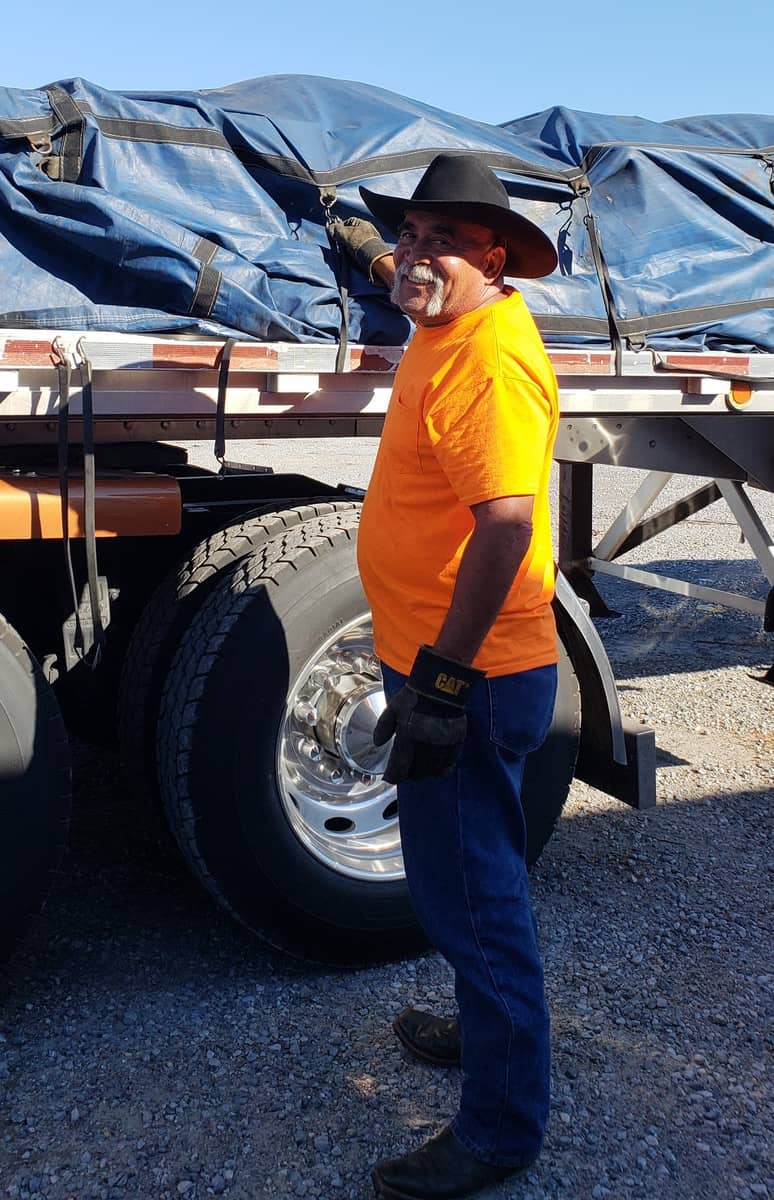The COVID-19 pandemic has forced food companies, along with trucking and relief groups, to pivot to how they normally respond to natural disasters like Hurricane Laura.
Tyson Foods (NYSE:TNS) is providing more than 1 million meals, as well as ice and other supplies, to areas hardest hit by the hurricane.
Prior to the COVID-19 pandemic, Tyson Foods would utilize its specialty-outfitted 53-foot trailer that includes cooking supplies, charcoal, grills, tents and utensils to set up a remote cooking operation, which served around 100,000 meals per day, according to Derek Burleson, public relations manager of Tyson Foods.
“With Covid-19, the safety of our folks is our top priority so it doesn’t make sense to follow that model in terms of putting them at risk, getting them out and having that kind of interaction with the community,” Burleson told FreightWaves. “It’s unfortunate, but that’s just the reality of the situation.”
Instead, eight Tyson Foods company trucks are rendezvousing to Tyson’s distribution center in Russellville, Arkansas, to get loaded and will head out to the hardest-hit areas impacted by the storm in the next few days.
“Instead of taking just one truck with about 35,000 pounds of the same kind of products, we will put 5,000 pounds of tortillas, 10,000 pounds of chicken, 10,000 pounds of prepared sandwiches, some bagged ice, some bulk ice, on all of the trucks,” Burleson said. “When we send those individual trucks into these different communities, they will have a nice variety of products.”
While Tyson Foods has helped with natural disasters on an informal basis for many years, the company formalized its disaster relief program known as “Meals that Matter” in the past 10 years, he said.
“During normal times, outside of a pandemic, we would set up and have cook teams at various plants all across the country who would bring their own smokers and grills and set up in a Walmart parking lot, but now we are making product donations to our disaster relief partners who are on the ground as they respond to the aftermath of this hurricane,” Burleson said.
Trucks with Room to Spare
Twenty-eight-year trucking veteran Shelli Conaway-Waugh, a flatbedder from Lexington, Kentucky, said the COVID-19 pandemic has had a major impact on the economy, which has hindered donations, along with volunteers, to help nonprofit organizations like her group, Trucks with Room to Spare, prepare for natural disasters like Hurricane Laura.

“Trucks with Room to Spare is asking other industry partners and motor carriers to help during this time of need by holding a local “stuff the trailer ” event to help collect needed supplies for these affected areas,” Conaway-Waugh told FreightWaves.
Many of the areas are still being covered by search and rescue teams, but distribution points are being set up by partner nonprofits to distribute critical supplies to hurricane victims.
If truckers are unable to haul a load or volunteers can’t collect supplies, she said donations, which go toward fuel costs or other supplies, will go a long way to help continue the group’s mission “of hauling hope into these communities.”
“A lot of truck drivers relate to survivors of natural disasters,” Conaway-Waugh said. “Some are just a breakdown or a major engine repair away from losing everything, so they understand the struggles that these hurricane survivors are facing.”
Read more articles by FreightWaves’ Clarissa Hawes
Trucking, rescue groups describe hurricane relief as ‘organized chaos’
Widow of murdered trucker seeks answers six years later
Don’t forget: CVSA’s Brake Safety Week starts Sunday
FreightWaves CEO: What to look out for when hauling FEMA loads
Truckers risk exposure to coronavirus to deliver critical medical and food supplies







